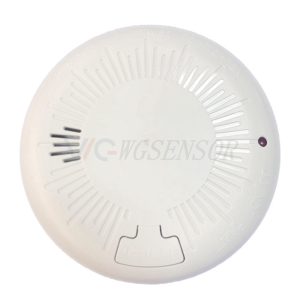Introduction:
Smoke alarms play a crucial role in ensuring the safety of occupants in various environments, and their installation in hospitals is of paramount importance. Hospitals are critical institutions that house vulnerable patients, dedicated healthcare professionals, and valuable medical equipment. In this context, the presence of smoke alarms becomes indispensable to safeguard lives, protect assets, and maintain a secure healthcare environment.
1. Patient Safety:
Hospitals accommodate individuals with varying health conditions, and some patients may have limited mobility or impaired senses. In the event of a fire, early detection through smoke alarms is vital to initiate prompt evacuation procedures. This is especially crucial in ensuring the safety of patients who may require assistance during emergency situations.
2. Healthcare Professionals:
The well-being of healthcare professionals is essential for the continuous delivery of quality medical care. Smoke alarms provide early warning signals, allowing hospital staff to respond swiftly and efficiently to potential fire incidents. This ensures that medical personnel can focus on patient care without compromising their own safety.
3. Protection of Critical Infrastructure:
Hospitals house sophisticated medical equipment, critical documents, and valuable resources. Smoke alarms serve as the first line of defense against fire hazards, helping to prevent damage to crucial infrastructure. Timely detection allows for the implementation of firefighting measures, minimizing the impact on medical facilities and preserving essential healthcare services.
4. Compliance with Regulations:
Healthcare institutions are subject to stringent safety regulations to ensure the well-being of patients, staff, and visitors. Installing smoke alarms is often a regulatory requirement to meet safety standards and compliance with building codes. Hospitals must adhere to these regulations to create a secure environment that aligns with industry standards.
5. Evacuation Planning:
Smoke alarms are integral components of any hospital’s comprehensive emergency response plan. Early detection enables efficient evacuation procedures, ensuring that patients and staff can evacuate safely and quickly. Regular fire drills, coupled with the functionality of smoke alarms, contribute to a well-prepared and organized response to potential emergencies.
Conclusion:
In conclusion, the installation of smoke alarms in hospitals is not only a regulatory necessity but a critical measure to ensure the safety of patients, healthcare professionals, and valuable medical assets. Early detection of smoke allows for timely response, evacuation, and protection of critical infrastructure. Hospitals must prioritize the implementation of robust fire safety measures, with smoke alarms playing a pivotal role in creating a secure and resilient healthcare environment.


Please contact us for free quotation by form below. We promise the quickest response within 24 hours: